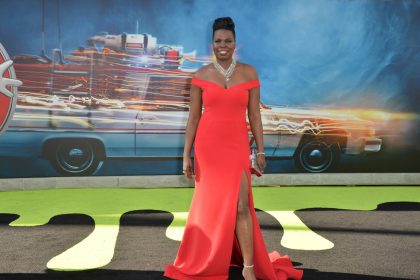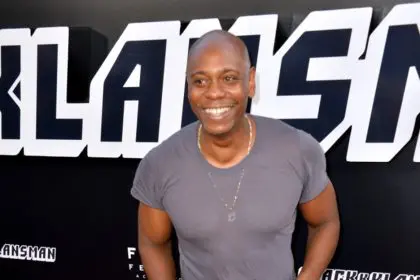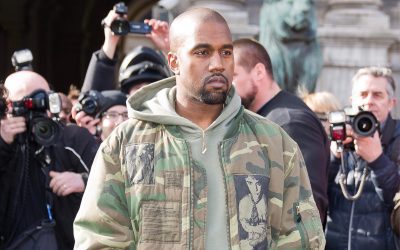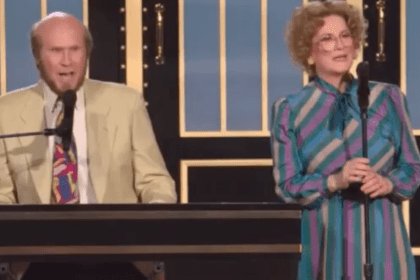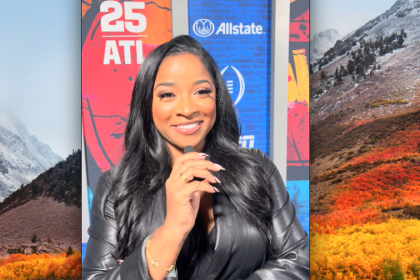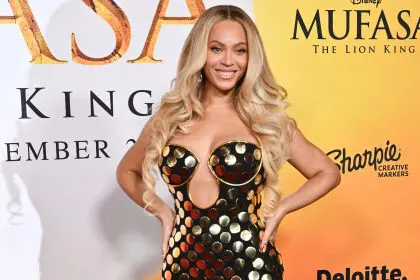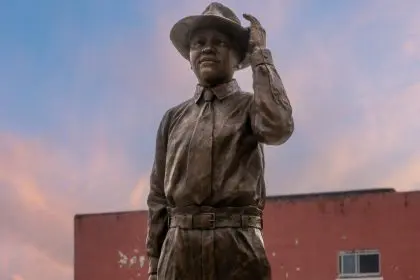
The world doesn’t know what to do with Leslie Jones. Not Hollywood. Not “Saturday Night Live.” Not Ghostbusters. Not designers. Not even Black folks. This empress-sized funnywoman who projects power and confidence that eclipses most men, has long been at the center of “She can’t do that” and “She shouldn’t do that” reports by normative behavior police investigators since her career became mainstream and she had the unmitigated gall to announce in the “No. 1 Slave Draft Pick,” “Saturday Night Live” skit, “See, I’m single right now, but back in the slave days, I would have never been single. I’m 6 feet tall and I’m strong … I mean, look at me, I’m a mandingo … I’m just saying that back in the slave days, my love life would have been way better. Massah would have hooked me up with the best brotha on the plantation. … I would be the No. 1 slave draft pick …” To that, Ebony.com editor Jamilah Lemieux tweeted, “This Leslie Jones person is an embarrassment … I’m so appalled right now.” Fast-forward a few years, and Jones is facing the same treatment for her feature in an Allstate commercial where a glammed up Jones makes slight passes at two White men who seem less than enthusiastic. Jones’ appearance nearly broke the internet with negative commentary led by Black folks who called foul, claiming her image was masculine, hypersexualized and racist.
To these haters, and to those who came before to picket the Leslie Jones camp, I say as I’m sure Jones would in her brash way, “Step the f— off.” Listen, Jones isn’t anything you think she is. More importantly, she isn’t anything you so badly want her to be. She’s more and she’s less. And like you, she’s trying to get closer to what exactly she is, but unlike most of us, she’s doing it on her own terms. And let’s not title that move courageous or bold. That minimizes the effort (and the intelligence of the author of this piece). Indeed, Jones’ move is deeper than that. She’s actualizing in her own way because that’s the only way she can. She can’t fit into the size 6 dress. She doesn’t have thin ankles or wrists or a coquettish grin. She’s a large cut of a woman with bold facial features, a strong voice, slick wit and short, kinky hair. She actually can’t join your “cult of true womanhood” and perform gender norms. She can’t. So, she’s making her own. Deal with it.
To this end, most current ruminations about Jones’ role in the Allstate commercial are shortsighted. In the short feature, Jones clearly projects her true being through imagery, voice and comedy. She exudes all of the power and prowess of a woman in charge of her own fate — with a little help from Allstate; however, the opposite seems to be the popular opinion. Watching the commercial through a new Jones-inspired lens, consider the following:
- Jones is in the “driver’s seat” (sorry, Hertz): Again, she is in control. She is powerful and each word she uses expresses her ability to navigate the world from the driver’s seat. Unlike many other commercials featuring women, she isn’t with a “girlfriend” driving off into the sunset for a “girl’s weekend,” she isn’t in the passenger’s seat letting some man drive her to a ball, and she doesn’t even have a cute little Yorkie to be her best friend. She’s just a woman setting her own course driving a road that looks rather adventurous (closing scene).
- Jones is confident, cool and in control of her sexuality: The “cult of true womanhood” is real. There is this assumption that a woman must be soft and sweet, thin and demure. Jones is none of those things and she confidently projects this in the commercial. She’s not hiding or pretending to be something she isn’t. She doesn’t have to. She carries the cool demeanor and disposition of someone like Barack Obama. She isn’t leaning or hunched over. She is centered and wearing her sexuality. This is controversial in the Black community, as many women still work to uphold notions of what femininity is and work hard not to appear anything more than soft and dainty. Black women work especially hard not to appear too masculine, as this image has been projected on them for centuries. But the question arises: what if a woman really just isn’t stereotypically feminine? Should she pretend? Should she hide herself away? Jones doesn’t. Jones certainly doesn’t in this commercial. Summoning Sojourner Truth, Jones is saying “Ain’t I a woman?”
- Jones could care less if these White boys want her: Many strong women know there’s this odd thing that often happens when you encounter a man who can’t handle the magnitude of your sexuality, size, or sexual prowess. They may get a peek at you, but knowing they can’t own you or even understand your image, makes them run away like little boys. They can’t even look at you directly. Jones clearly plays on this in the commercial where she is the sexual aggressor. (And why can’t she be? Why can’t a Black woman want to get some? See dated social constructs and fears about images of Black women noted above.) Here’s the thing: Jones doesn’t really want to get with either of these dudes. Her game is much stronger than that. She’s just driving through town and making horrible passes at men. This doesn’t make her a hypersexualized Black woman set to ruin all things Michelle Obama. She’s actually furthering her image of being someone in control by objectifying the white men around her. She’s treating them like pieces of meat. Random models on her set. The same way men often treat women on the street. Now, that’s some s— for you to talk about. If Jones was Amy Schumer or Roseanne Barr, you’d be able to see the point instantly, but you can’t now because it’s Leslie Jones.
- Jones speaks in her own voice: Jones is speaking African American vernacular English (AAVE). She isn’t putting on or pretending to speak stereotypically perfect English, as I am sure she can. Instead, to further project the confidence most don’t understand, she is speaking in her own voice, moving it from the margin to the center of the page and thus making it acceptable.
Here’s the thing — both sides of the Leslie Jones Allstate debate have some strong points. But one side (the haters) has to stop trying to force her brand of beauty into a neat ultra-feminine box. She’s not Kerry Washington. She’s not Michelle Obama. She’s not whomever. This form of respectability politics only limits the potential of Black women (especially in comedy) trying to escape the very issues critics work hard to dismantle. The same rhetoric tried to imprison fictionalized character “Miss Sophia” in The Color Purple, turned poor Whoopi Goldberg away from the Black community (I know she got tired of hearing about how ugly she was), and continues to vilify every other audacious Black woman on television (consider debates about Mo’Nique, Sheryl Underwood … Adele Givens). In our community simply living out loud is either not enough or just too much.

